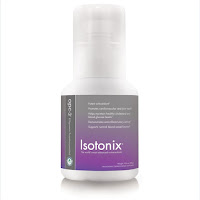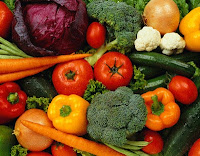Tart cherries linked to reduced risk of stroke
In addition to positive heart health benefits, cherry-rich diet suggests decrease in stroke risk in University of Michigan animal study
ANN ARBOR, Mich.
For the millions of Americans at risk for heart disease or diabetes, a diet that includes tart cherries might actually be better than what the doctor ordered, according to new animal research from the University of Michigan Health System.
The new research from the U-M Cardioprotection Research Laboratory suggests that tart cherries not only provide similar cardiovascular benefits as the prescribed medications, but can also reduce the risk of stroke, even when taken with these pharmaceutical options.
 The results, which were seen in stroke-prone rats, were presented Tuesday, April 23 at the Experimental Biology 2013 meeting in Boston.
The results, which were seen in stroke-prone rats, were presented Tuesday, April 23 at the Experimental Biology 2013 meeting in Boston.
The group’s previous research has shown that intake of U.S.-produced, Montmorency tart cherries activates PPAR isoforms (peroxisome proliferator activating receptors) in many of the body’s tissues. Researchers believe that anthocyanins – the pigments that give the fruit its red color – may be responsible for PPAR activation.
PPARs regulate genes involved in fat and glucose metabolism, and when modified can help reduce the risk of cardiovascular disease. PPAR agonists, among them medications such as Actos (pioglitazone), act in a similar way but cardiovascular side effects have limited their use.
“Our previous research has shown that Montmorency tart cherries can have a positive effect on cardiovascular health and can reduce risk factors like high cholesterol and diabetes,” says E. Mitchell Seymour, Ph.D., supervisor of the Cardioprotection Research Laboratory. “While prescribed drugs improve the outlook for certain risk factors, they’ve also shown to have undesirable side effects. We wanted to see if a tart cherry-rich diet might provide similar cardiovascular benefits without the risk of heart attack or stroke.”
The researchers compared the effect of tart cherries and the drug Actos in stroke-prone rats by measuring the animals’ systolic blood pressure as well as locomotion, balance, coordination, all of which can show the aftereffects of a stroke.
By putting the rats through various physical tests, such as walking on a tapered beam and climbing a ladder, the researchers found that compared to Actos, tart cherry intake significantly improved balance and coordination, and at the same time lowered blood pressure.
While the research results indicate that rats who consumed only tart cherries had the best results, those who had the combination of tart cherries and Actos also did better than those who only took the drug. Seymour cautioned that the results can’t be applied directly to humans, but they are a potentially positive sign for those taking medications.
“We weren’t sure if the risk for stroke would decline in animals taking both tart cherry and the drug,” Seymour says. “It turns out that the cherries did have a positive effect even when combined with the medication.”
Steven Bolling, M.D., a U-M cardiac surgeon and the laboratory’s director, said the study adds to the group’s growing body of research linking cherries to positive heart health. The results provide the groundwork for continued investigation into the topic, he says.
“This research is the first to link to cherries to a reduction in stroke-related symptoms,” Bolling says. “It gives us a good preclinical model to further explore the positive stroke-related benefits of an anthocyanin-rich diet.”

According to Dr. Sanjay Gupta
"Time is of the essence for Stroke Patients"
"Time is of the essence for Stroke Patients"
Learn more here -Time is of the Essence for Stroke Patients
Most people don't recognize stroke symptoms or realize how small the window is for successful treatment.
Take Control of your situation!
 |
| OPC-3 |
There are basic preventive measures that can reduce your risk of having a stroke:
If you cannot get the anthocyanins from your diet then you must supplement. Get the anthocyanins though a supplement ( OPC-3 or ORAC ) Try an isotonic blend so your body can absorb 95% of the product compared to a pill or capsule you get max of 35%.
Remember if someone continues doing what they have always done then they will have what they have always had. It is time to make a change for your own health.
Remember if someone continues doing what they have always done then they will have what they have always had. It is time to make a change for your own health.
 As many of you know, I firmly believe that the only people who should be taking cholesterol lowering statin drugs—such as Zocor, Lipitor, or the many others—are men over 50 who have coronary artery disease. For everyone else, statins may actually be raising the incidence of heart failure because they deplete the body of
As many of you know, I firmly believe that the only people who should be taking cholesterol lowering statin drugs—such as Zocor, Lipitor, or the many others—are men over 50 who have coronary artery disease. For everyone else, statins may actually be raising the incidence of heart failure because they deplete the body of 






